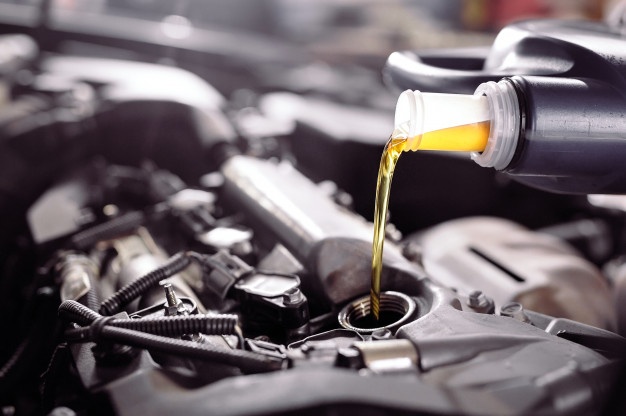Every driver and car owner aims to keep their car running for as long and as smoothly as possible. Car preventive maintenance is a necessary investment. And keeping engine oil quality is one of those investments.
Engine oil ensures all the moving parts are well lubricated as this reduces the possibility of wear and tear.Car oil also traps all the grime, dirt and gruel so that they don’t go to areas they shouldn’t be.
Here are some of the most important things every driver and car owner should know about oil changes.
How oil helps your car?
Oil protects and lubricates your engine and keeps its important parts from getting damaged or worn out.
Your vehicle is made out of different components, your engine alone has many parts that need to work together and as you drive your vehicle through the rough roads for long periods of time, heat is created.
Oil not only lubricates important parts, but also absorbs the heat under the hood so that your machine continues to function smoothly even with long hours of drive.
What are the different types of engine oil?
There are many types of engine oils. You might notice this as you walk down your motor aisle and see the different choices available to you.
There are different brands, weights, quantities and types.
We’ll list down the three most common types used by motorists.
Full synthetic
Synthetic oil is lab-made, and this makes the product more consistent and easier to manufacture. They are more refined and known to be better for your engine.
They’re a bit more expensive as well but compared to conventional oil, they tend to last longer and do not oxidize too quickly. Synthetic oil is safe to use on most types of engines ranging from your regular four-cylinder engine to the tougher DD15 engine.
However, for high-mileage cars, it’s best to consult with your car manufacturer or car user manual.
Synthetic blend
Synthetic blends are a hybrid oil made from both natural and synthetic materials. Manufacturers mix both of them to capture the benefits and filter the drawback of both materials.
As a result, they’re expected to provide better performance and protection than your average oil but not better than a full-synthetic oil. They’re also a bit more expensive than conventional oils, and they oxidize slower.
They’re recommended for SUVs, trucks, vans and other vehicles that carry a heavy load.
Conventional motor oil
The most commonly used type of oil, conventional motor oil provides reliable performance as a lubricant and offers more protection for older engines. Though conventional oils are less chemically stable and oxidize quicker compared to synthetic and synthetic blend oils.
It is ideal for vehicles that carry lighter loads and for late-model cars with a simple engine design.
Always consult with your mechanic or a professional to learn about the best type of oil for your vehicle.
What is an oil filter for?
Although oils can keep grime and dirt away from places they shouldn’t be, your car oil needs to be clean first before it does its job. Your oil filter captures waste, debris, small particles, or metal fragments in your oil to keep your engine running smoothly.
Without the oil filter, small particles can get into your motor oil and ruin your engine. This is why filtering out these particles is important as the oil is cleaner and can be used for longer.
How often should you change oil filters?
Oil and oil filter change depends on your manufacturer’s recommendations. However, some make it a habit to change their oil filter every other oil change whereas some choose to change their oil filter every 20,000 to 30,000 miles.
There are certain factors that you need to consider when changing your oil such as your driving environment, the way you drive, how old your engine is, and the oil you use.
Check with your car manufacturer or service center for the best time to change oil filters for your particular car model.
Have Routine Oil Changes for Longer Engine Life
Engine oil is the lifeblood of your vehicle. Clean and fresh oil keeps your engine healthy and will save you money on a replacement, maintenance, and repair. Depending on your car insurance company, some only shoulder engine repairs when it’s related to accidents.
Since your engine is the most complicated and expensive part of your car, make sure that basic oil change and oil filter replacement are always implemented.
This will not only keep your car running smoothly for a long time, but also help you sell your car for good value when you plan to resell.

Be the first to comment on "5 Things Every Driver Should Know About Oil Changes"